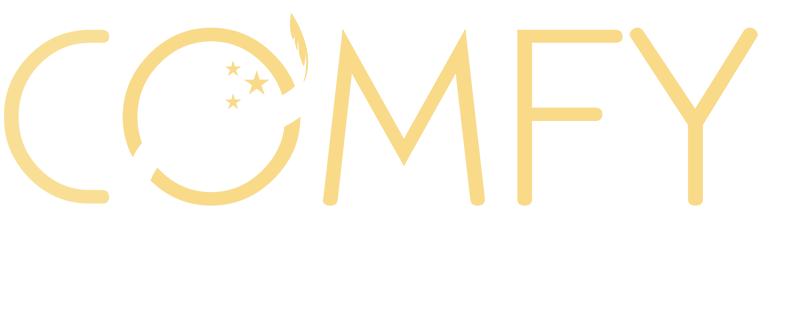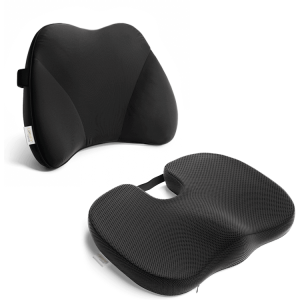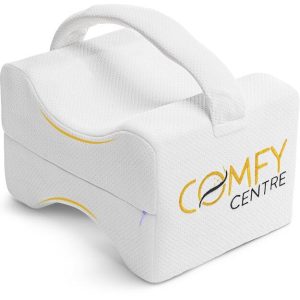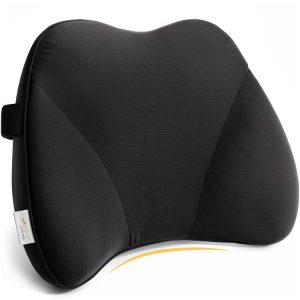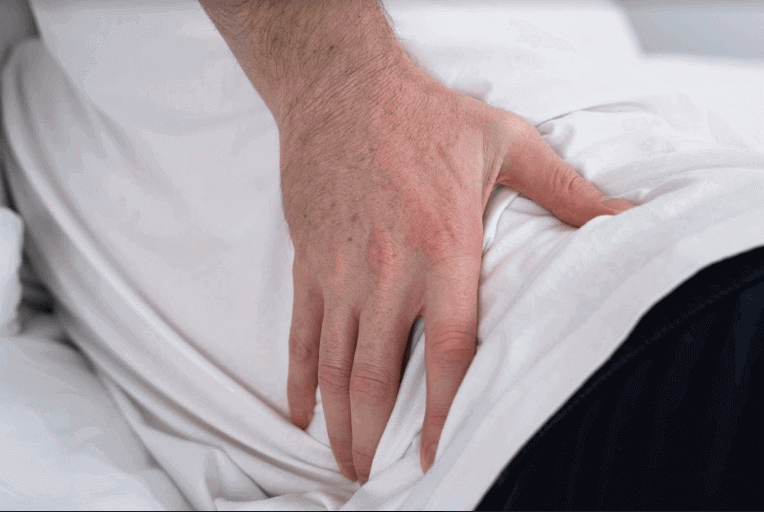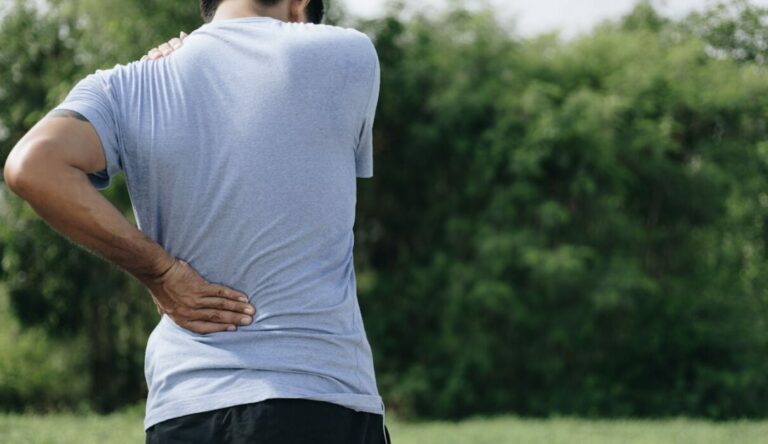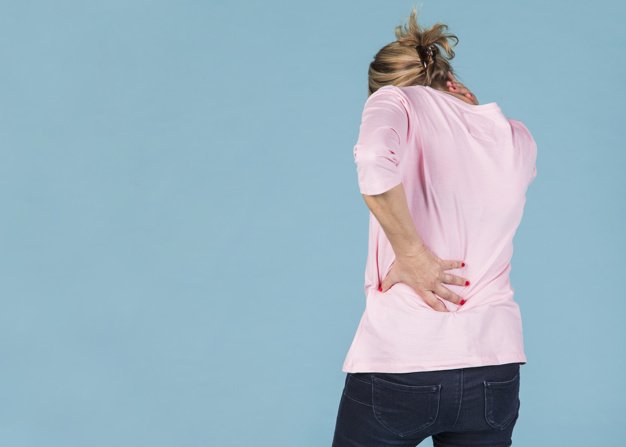
Middle back pain usually occurs in the middle portion of your back and is characterized by inflamed muscles and discomfort in and around the spine. Although the middle back is less prone to pain compared to the lower back, the underlying pain can still be weakening, making it difficult to perform daily tasks.
What Causes Upper & Middle Back Pain?
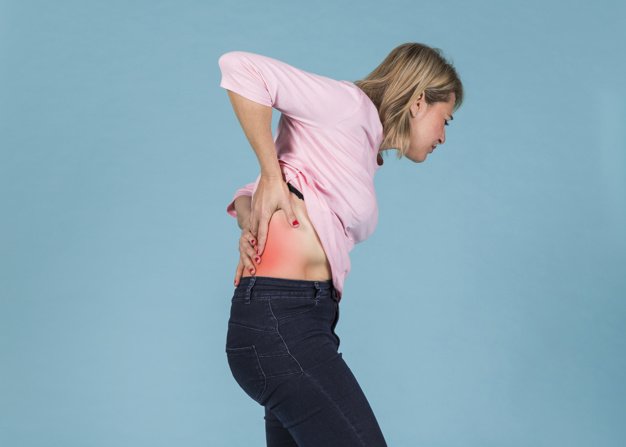
Arthritis
Spinal osteoarthritis is swelling of the facet joints in the spine or joints that may be related to autoimmune diseases, infection, wear and tear, and other conditions.
The first thing you'll notice when you have osteoarthritis in your low back is stiff and achy low back pain. It usually occurs after working out or doing physical work that requires too much load.
Age
As you age, pain in the back is highly prevalent, typically in people aged 30 to 60 due to reduced muscle mass, weakening bones, and lesser fluid present in the spinal joints.
Though, people with the younger generation are also affected.
Scoliosis
Scoliosis is an irregular curve in the spine that's common among ages 9 to 15 and can be derived from family history. It also affects about 2% of females and 0.5% of males.
Herniated discs
The lower back is prone to slipped (herniated) discs, and excessive injury or strain can trigger this problem. A herniated disc can put increased pressure on the nerves and muscles that surround it, causing pain and insensibility on one side of the body.
Kidney problems
The kidneys are located on both sides of the body close to the top of the abdomen. Since they are near the back muscles & ribcage, people suffering from kidney conditions usually feel middle back pain. Symptoms include nausea, fever, chills, and difficulty urinating.
Lifestyle factors
Prolonged inactivity leads to weak muscles, which can lead to severe or sudden pain. People performing improper lifting procedures can also encounter pain in the back.
Poor posture
The most common reason for middle back pain is poor posture, which is usually a result of how we walk, stand, and sit. Bad posture can directly lead to upper back pain, which is why it is essential to maintain proper sitting and standing positions.
How to Treat Upper & Middle Back Pain?

Home Remedies
Contrast Therapy
Contrast therapy or application of cold or hot packs on an injured area can be one of the effective remedies for middle back pain. It helps lessen pain and increases circulation.
Over-the-counter Medications
Ibuprofen (such as Advil or Motrin) is an excellent over-the-counter medication for the temporary treatment of middle back pain. Acetaminophen (such as Tylenol) can also be an effective option for relieving upper back pain.
Stretching Exercises
There are few specific exercises you can do that may strengthen and stretch out the muscles in the middle back to improve middle back pain.
Child's Pose
Child's pose is a typical yoga pose that gently stretches the thighs, hips, and ankles and helps relax the body and mind.
To execute this exercise, kneel on the floor with your toes together and your knees hip-width apart. Rest your palms on top of your thighs.
On an exhale, lower your torso between your knees. Extend your arms alongside your body with your palms facing down. Relax your shoulders toward the ground. Rest in the pose for as long as needed.
Knee-to-Chest Stretch
Knee-to-Chest Stretch exercise is a movement that helps reduce stiffness associated with spinal arthritis and spinal stenosis.
To execute this exercise, begin by lying on your back with your knees bent and feet flat on the floor. Bring your hands to rest either behind your knees or right below your kneecaps. Slowly bring both knees toward your chest, using your hands to pull your knees gently. Hold here 20 to 30 seconds, and try rocking your hips side to side and up and down to help massage your low back, then return to starting position.
Cat-Cow Stretch
The cat-cow stretch helps warm up your spine and relieves back and neck tension after a long day.
To execute this exercise, get onto your hands and knees with your knees hip-width apart. Arch your back by pulling your belly button up toward your spine, letting your head drop forward. Hold for 5–10 seconds. You should feel a gentle stretch in your lower back. Return to the starting position. Raise your head and let your pelvis fall forward, curving your back down toward the floor. Hold for 5–10 seconds, then return to the starting position. Repeat the cat-cow stretch 15–20 times.
Check out more strengthening and stretching exercises here to help improve your back pain.
Medical Treatments
If any middle back pain symptoms persist, it's time for you to seek medical help. Medical treatments such as these can help improve the pain:
- prescription medicines (painkillers, muscle relaxants, and steroid injections)
- physical therapy (massage or exercises)
How to Prevent Upper & Middle Back Pain?
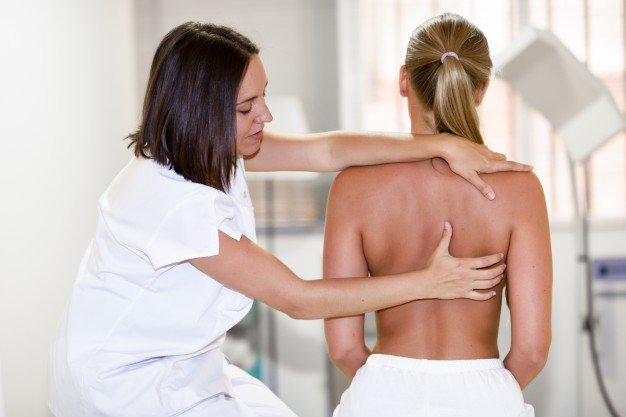
Back-sleeping
Back-sleeping allows your spine to perfectly aligned all night, reducing any pain while you sleep, and as you wake up.
Proper posture
Excellent and appropriate posture can promote both a healthy mind and body. The key to good posture is maintaining the head above the shoulders and keep the top shoulder over the hips.
Opt for an ergonomic workspace
Creating simple improvements to your workplace ergonomics can help improve upper back pain. Keep the height of your monitor about 20 inches in front of you, placed at an angle of 10-20 degrees eye-level. Invest in an adjustable ergonomic chair and back support tool that provides optimal back comfort.
Watch your weight
A person who is overweight is prone to upper back pain as extra weight adds pressure in the back muscles. Maintain a healthy weight and incorporate a wholesome diet.
Try Physical Therapy
Patients with middle back pain benefit by using physical therapy for pain relief since physical therapists execute the appropriate exercise technique. It's also why it's advisable to get a consultation first with a physician to diagnose your condition.
Consultation is now made possible and hassle-free, check out BackPain.Online for a personalized online program to improve posture, back pain, and mobility.
Related Articles:
